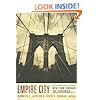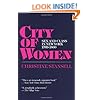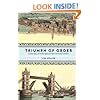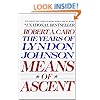


Flip to back
Flip to front


The Power Broker: Robert Moses and the Fall of New York Paperback – July 12, 1975
See all 14 formats and editions
Hide other formats and editions
| Amazon Price | New from | Used from |
|
Hardcover, Deckle Edge
"Please retry"
|
$34.64 | $19.97 |
|
Unknown Binding
"Please retry"
|
—
|
$70.85 | $36.84 |

$15.55
FREE Shipping on orders over $35.
In Stock.
Ships from and sold by Amazon.com.
Gift-wrap available.
NO_CONTENT_IN_FEATURE
Tell the Publisher!
I'd like to read this book on Kindle
Don't have a Kindle? Get your Kindle here, or download a FREE Kindle Reading App.
I'd like to read this book on Kindle
Don't have a Kindle? Get your Kindle here, or download a FREE Kindle Reading App.
Best Books of the Month
Want to know our Editors' picks for the best books of the month? Browse Best Books of the Month, featuring our favorite new books in more than a dozen categories.
Want to know our Editors' picks for the best books of the month? Browse Best Books of the Month, featuring our favorite new books in more than a dozen categories.
Product Details
Would you like to update product info or give feedback on images?.
|
Editorial Reviews
Review
"Surely the greatest book ever written about a city." --David Halberstam
"A masterpiece of American reporting. It's more than the story of a tragic figure or the exploration of the unknown politics of our time. It's an elegantly written and enthralling work of art." --Theodore H. White
"The most absorbing, detailed, instructive, provocative book ever published about the making and raping of modern New York City and environs and the man who did it, about the hidden plumbing of New York City and State politics over the last half-century, about the force of personality and the nature of political power in a democracy. A monumental work, a political biography and political history of the first magnitude." --Eliot Fremont-Smith, New York
"One of the most exciting, un-put-downable books I have ever read. This is definitive biography, urban history, and investigative journalism. This is a study of the corruption which power exerts on those who wield it to set beside Tacitus and his emperors, Shakespeare and his kings." --Daniel Berger, Baltimore Evening Sun
"Fascinating, every oversize page of it." --Peter S. Prescott, Newsweek
"A study of municipal power that will change the way any reader of the book hereafter peruses his newspaper." --Philip Herrera, Time
"A triumph, brilliant and totally fascinating. A majestic, even Shakespearean, drama about the interplay of power and personality." --Justin Kaplan
"In the future, the scholar who writes the history of American cities in the twentieth century will doubtless begin with this extraordinary effort." --Richard C. Wade, The New York Times Book Review
"The feverish hype that dominates the merchandising of arts and letters in America has so debased the language that, when a truly exceptional achievement comes along, there are no words left to praise it. Important, awesome, compelling--these no longer summon the full flourish of trumpets this book deserves. It is extraordinary on many levels and certain to endure." --William Greider, The Washington Post Book World
"Apart from the book's being so good as biography, as city history, as sheer good reading, The Power Broker is an immense public service." --Jane Jacobs
"Required reading for all those who hope to make their way in urban politics; for the reformer, the planner, the politician and even the ward heeler." --Jules L. Wagman, Cleveland Press
"An extraordinary study of the workings of power, individually, institutionally, politically, and economically in our republic." --Edmund Fuller, The Wall Street Journal
"Caro has written one of the finest, best-researched and most analytically informative descriptions of our political and governmental processes to appear in a generation." --Nicholas Von Hoffman, The Washington Post
"Caro's achievement is staggering. The most unlikely subjects--banking, ward politics, construction, traffic management, state financing, insurance companies, labor unions, bridge building--become alive and contemporary. It is cheap at the price and too short by half. A milestone in literary and publishing history." --Donald R. Morris, The Houston Post
"Irresistible reading. It is like one of the great Russian novels, overflowing with characters and incidents that all fit into a vast mosaic of plot and counterplot. Only this is no novel. This is a college education in power corruption." --George McCue, St. Louis Post-Dispatch
"A masterpiece of American reporting. It's more than the story of a tragic figure or the exploration of the unknown politics of our time. It's an elegantly written and enthralling work of art." --Theodore H. White
"The most absorbing, detailed, instructive, provocative book ever published about the making and raping of modern New York City and environs and the man who did it, about the hidden plumbing of New York City and State politics over the last half-century, about the force of personality and the nature of political power in a democracy. A monumental work, a political biography and political history of the first magnitude." --Eliot Fremont-Smith, New York
"One of the most exciting, un-put-downable books I have ever read. This is definitive biography, urban history, and investigative journalism. This is a study of the corruption which power exerts on those who wield it to set beside Tacitus and his emperors, Shakespeare and his kings." --Daniel Berger, Baltimore Evening Sun
"Fascinating, every oversize page of it." --Peter S. Prescott, Newsweek
"A study of municipal power that will change the way any reader of the book hereafter peruses his newspaper." --Philip Herrera, Time
"A triumph, brilliant and totally fascinating. A majestic, even Shakespearean, drama about the interplay of power and personality." --Justin Kaplan
"In the future, the scholar who writes the history of American cities in the twentieth century will doubtless begin with this extraordinary effort." --Richard C. Wade, The New York Times Book Review
"The feverish hype that dominates the merchandising of arts and letters in America has so debased the language that, when a truly exceptional achievement comes along, there are no words left to praise it. Important, awesome, compelling--these no longer summon the full flourish of trumpets this book deserves. It is extraordinary on many levels and certain to endure." --William Greider, The Washington Post Book World
"Apart from the book's being so good as biography, as city history, as sheer good reading, The Power Broker is an immense public service." --Jane Jacobs
"Required reading for all those who hope to make their way in urban politics; for the reformer, the planner, the politician and even the ward heeler." --Jules L. Wagman, Cleveland Press
"An extraordinary study of the workings of power, individually, institutionally, politically, and economically in our republic." --Edmund Fuller, The Wall Street Journal
"Caro has written one of the finest, best-researched and most analytically informative descriptions of our political and governmental processes to appear in a generation." --Nicholas Von Hoffman, The Washington Post
"Caro's achievement is staggering. The most unlikely subjects--banking, ward politics, construction, traffic management, state financing, insurance companies, labor unions, bridge building--become alive and contemporary. It is cheap at the price and too short by half. A milestone in literary and publishing history." --Donald R. Morris, The Houston Post
"Irresistible reading. It is like one of the great Russian novels, overflowing with characters and incidents that all fit into a vast mosaic of plot and counterplot. Only this is no novel. This is a college education in power corruption." --George McCue, St. Louis Post-Dispatch
From the Inside Flap
One of the most acclaimed books of our time, winner of both the Pulitzer and the Francis Parkman prizes, The Power Broker tells the hidden story behind the shaping (and mis-shaping) of twentieth-century New York (city and state) and makes public what few have known: that Robert Moses was, for almost half a century, the single most powerful man of our time in New York, the shaper not only of the city's politics but of its physical structure and the problems of urban decline that plague us today.
In revealing how Moses did it--how he developed his public authorities into a political machine that was virtually a fourth branch of government, one that could bring to their knees Governors and Mayors (from La Guardia to Lindsay) by mobilizing banks, contractors, labor unions, insurance firms, even the press and the Church, into an irresistible economic force--Robert Caro reveals how power works in all the cities of the United States. Moses built an empire and lived like an emperor. He personally conceived and completed public works costing 27 billion dollars--the greatest builder America (and probably the world) has ever known. Without ever having been elected to office, he dominated the men who were--even his most bitter enemy, Franklin D. Roosevelt, could not control him--until he finally encountered, in Nelson Rockefeller, the only man whose power (and ruthlessness in wielding it) equalled his own.
In revealing how Moses did it--how he developed his public authorities into a political machine that was virtually a fourth branch of government, one that could bring to their knees Governors and Mayors (from La Guardia to Lindsay) by mobilizing banks, contractors, labor unions, insurance firms, even the press and the Church, into an irresistible economic force--Robert Caro reveals how power works in all the cities of the United States. Moses built an empire and lived like an emperor. He personally conceived and completed public works costing 27 billion dollars--the greatest builder America (and probably the world) has ever known. Without ever having been elected to office, he dominated the men who were--even his most bitter enemy, Franklin D. Roosevelt, could not control him--until he finally encountered, in Nelson Rockefeller, the only man whose power (and ruthlessness in wielding it) equalled his own.
Important Information
Ingredients
Example Ingredients
Directions
Example Directions
Example Ingredients
Directions
Example Directions
More About the Author
Discover books, learn about writers, read author blogs, and more.
Customer Reviews
Most Helpful Customer Reviews
156 of 157 people found the following review helpful
By
Allen Smalling
TOP 500 REVIEWERVINE VOICE on February 4, 2000
Format: Paperback
3 Comments
Sending feedback...
Everyone knows--or intuitively feels--that American cities had some great opportunities to become enjoyable, livable places during the course of the 20th Century but somehow blew the opportunity. This book explains a major component of why and how the betrayal occurred by focusing on the man who was both the cause and the victim of the betrayal, a powerful bureaucrat little known outside of metropolitan New York, Robert Moses.
The book details Moses' slow rise to power as an idealistic Wilsonian Democrat fighting the entrenched power of corrupt Tammany Hall politics, his novel approach to parks planning (he virtually invented the "parkway," for example), his massive public works (among them the Triborough Bridge and all of New York City's expressways), and his inevitable decline and fall after he refused to relinquish power in old age.
As time wore on Moses became less and less the man of the people and more and more the man of the system of his own creation, and that system was the toll-gathering mechanism of New York's bridges and tunnels. He invented that peculiar institution, the "authority" (as in Port "Authority" or Tennessee Valley "Authority") that is neither wholly governmental nor wholly private, and so lacks the restraints of either; Moses' cash cows kept him in power and gave him an antidemocratic arrogance that is truly breathtaking and, one hopes, will never be duplicated.
This book isn't just for New Yorkers or for those who wonder why New York's roadways are so confusingly laid out. America's other big cities are New York writ small--they went to New York at the height of Moses' power and emulated his methods!Read more ›
The book details Moses' slow rise to power as an idealistic Wilsonian Democrat fighting the entrenched power of corrupt Tammany Hall politics, his novel approach to parks planning (he virtually invented the "parkway," for example), his massive public works (among them the Triborough Bridge and all of New York City's expressways), and his inevitable decline and fall after he refused to relinquish power in old age.
As time wore on Moses became less and less the man of the people and more and more the man of the system of his own creation, and that system was the toll-gathering mechanism of New York's bridges and tunnels. He invented that peculiar institution, the "authority" (as in Port "Authority" or Tennessee Valley "Authority") that is neither wholly governmental nor wholly private, and so lacks the restraints of either; Moses' cash cows kept him in power and gave him an antidemocratic arrogance that is truly breathtaking and, one hopes, will never be duplicated.
This book isn't just for New Yorkers or for those who wonder why New York's roadways are so confusingly laid out. America's other big cities are New York writ small--they went to New York at the height of Moses' power and emulated his methods!Read more ›
Thank you for your feedback.
If this review is inappropriate, please let us know.
Sorry, we failed to record your vote. Please try again
144 of 149 people found the following review helpful
By
Bruce Appelbaum
on April 4, 2000
Format: Paperback
2 Comments
Sending feedback...
I first picked up The Power Broker when it was published 25 years ago. Since then I've re-read it three or four times over the years. It is a true monument to Caro that this book has remained in print in both hc and pb over these years.
This massive work is at the same time a biography of Robert Moses and the metropolitan New York City area. Moses, originally a reformer and a true public servant, somehow became tainted by the power entrusted to him. It was his way or no way -- and once he became firmly entrenched there was no "no way." A typical Moses tactic: design a great public work (bridge, for example) and underestimate the budget. A bargain sure to be approved and funded by the politicians! Then run out of money halfway through construction. The rest of the money will surely be forthcoming because no politician wants to be associated with a half-finished and very visibile "failure" -- it's much better to take credit for an "against the odds" success.
I grew up in NYC at the tail end of Moses' influence and I remember the 1964 Worlds Fair in NYC vividly, especially a "guidebook" that lionized Moses' construction prowess. In school, Moses' contribution was also taught (always positively) when we had units covering NYC history. If nothing else, Moses understood the power of good publicity, and used tactics later adopted by the current mayor (King Rudy) to control the press and public opinion. This book brings Moses back to human scale and deconstructs (no pun intended) his impact on the city.
The book is long, detailed, and compelling. Great beach reading -- especially at Jones Beach!Read more ›
This massive work is at the same time a biography of Robert Moses and the metropolitan New York City area. Moses, originally a reformer and a true public servant, somehow became tainted by the power entrusted to him. It was his way or no way -- and once he became firmly entrenched there was no "no way." A typical Moses tactic: design a great public work (bridge, for example) and underestimate the budget. A bargain sure to be approved and funded by the politicians! Then run out of money halfway through construction. The rest of the money will surely be forthcoming because no politician wants to be associated with a half-finished and very visibile "failure" -- it's much better to take credit for an "against the odds" success.
I grew up in NYC at the tail end of Moses' influence and I remember the 1964 Worlds Fair in NYC vividly, especially a "guidebook" that lionized Moses' construction prowess. In school, Moses' contribution was also taught (always positively) when we had units covering NYC history. If nothing else, Moses understood the power of good publicity, and used tactics later adopted by the current mayor (King Rudy) to control the press and public opinion. This book brings Moses back to human scale and deconstructs (no pun intended) his impact on the city.
The book is long, detailed, and compelling. Great beach reading -- especially at Jones Beach!Read more ›
Thank you for your feedback.
If this review is inappropriate, please let us know.
Sorry, we failed to record your vote. Please try again
79 of 82 people found the following review helpful
By
Tyler Smith
on October 18, 2000
Format: Paperback
Comment
Sending feedback...
This massive work, published in 1975, is unfortunately just as timely today as it was a quarter century ago. It is the story of Robert Moses, arguably one of the most important and influential men of the second half of the 20th century. He, for better or for worse, gave us our models for the modern highway transportation system and wielded enormous power in the city and state of New York -- without ever being elected to a single public office.
At 1,162 pages, Caro's work will undoubtedly always face the charge that it needed editing. But to address large themes, a writer needs to expand, and Caro does, brilliantly for the most part. "The Power Broker" takes on the question of whether democracy in America really works. Using Moses' life as a model, the answer is "no." Moses began as a passionate believer in reform, a man who wanted to end favoritism and corruption in New York. Yet early on he concluded that to "get things done," he needed to beat the power-wielders at their own game, and he did. He built an enormous network of influence that included politicians, unions, banks and big business. And he used that power to build the most enormous transportation system in the nation, often over the objections of elected officials.
But the book also makes clear the cost of power. For one thing, there were political losers. Moses was ruthless in his attacks on those who opposed him, often lowering himself to attacking character. Mass transportation was a loser during the time Moses wielded power. He considered the automobile the premier mode of transportation, and he steadfastly refused to accommodate plans for subway, bus, and train improvements. And the poor and working class were losers in Moses' power game.Read more ›
At 1,162 pages, Caro's work will undoubtedly always face the charge that it needed editing. But to address large themes, a writer needs to expand, and Caro does, brilliantly for the most part. "The Power Broker" takes on the question of whether democracy in America really works. Using Moses' life as a model, the answer is "no." Moses began as a passionate believer in reform, a man who wanted to end favoritism and corruption in New York. Yet early on he concluded that to "get things done," he needed to beat the power-wielders at their own game, and he did. He built an enormous network of influence that included politicians, unions, banks and big business. And he used that power to build the most enormous transportation system in the nation, often over the objections of elected officials.
But the book also makes clear the cost of power. For one thing, there were political losers. Moses was ruthless in his attacks on those who opposed him, often lowering himself to attacking character. Mass transportation was a loser during the time Moses wielded power. He considered the automobile the premier mode of transportation, and he steadfastly refused to accommodate plans for subway, bus, and train improvements. And the poor and working class were losers in Moses' power game.Read more ›
Thank you for your feedback.
If this review is inappropriate, please let us know.
Sorry, we failed to record your vote. Please try again











